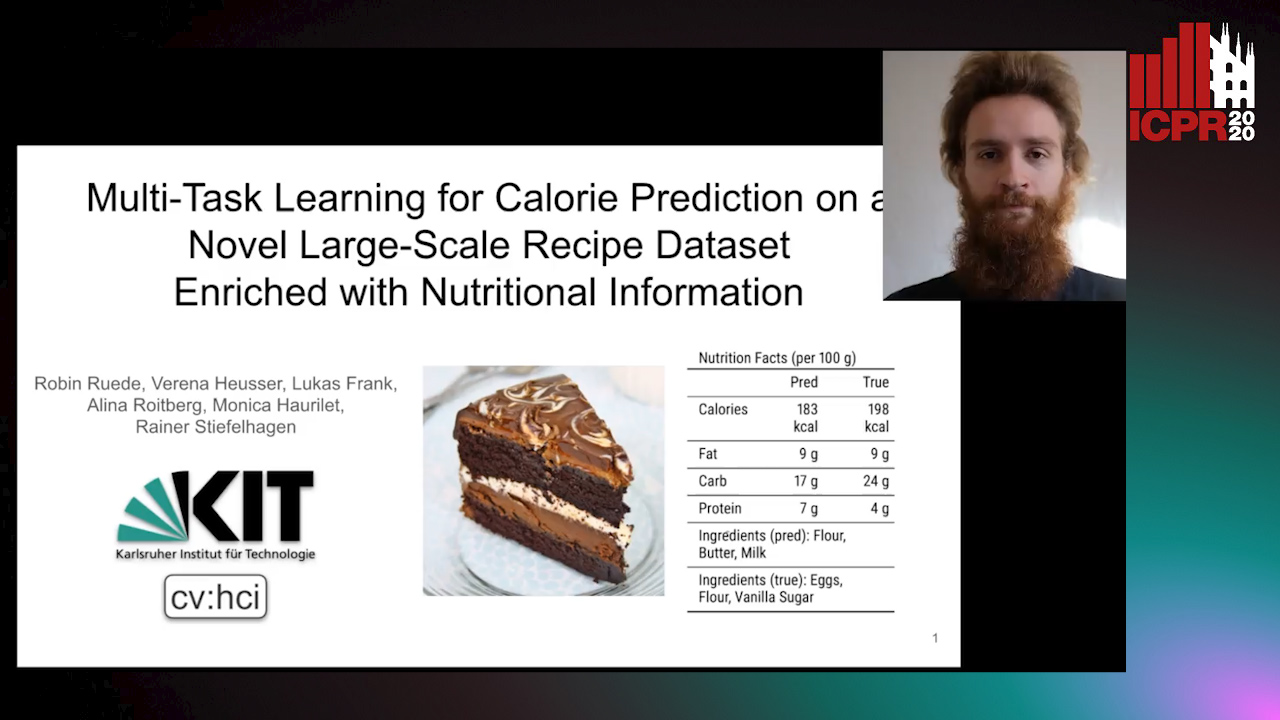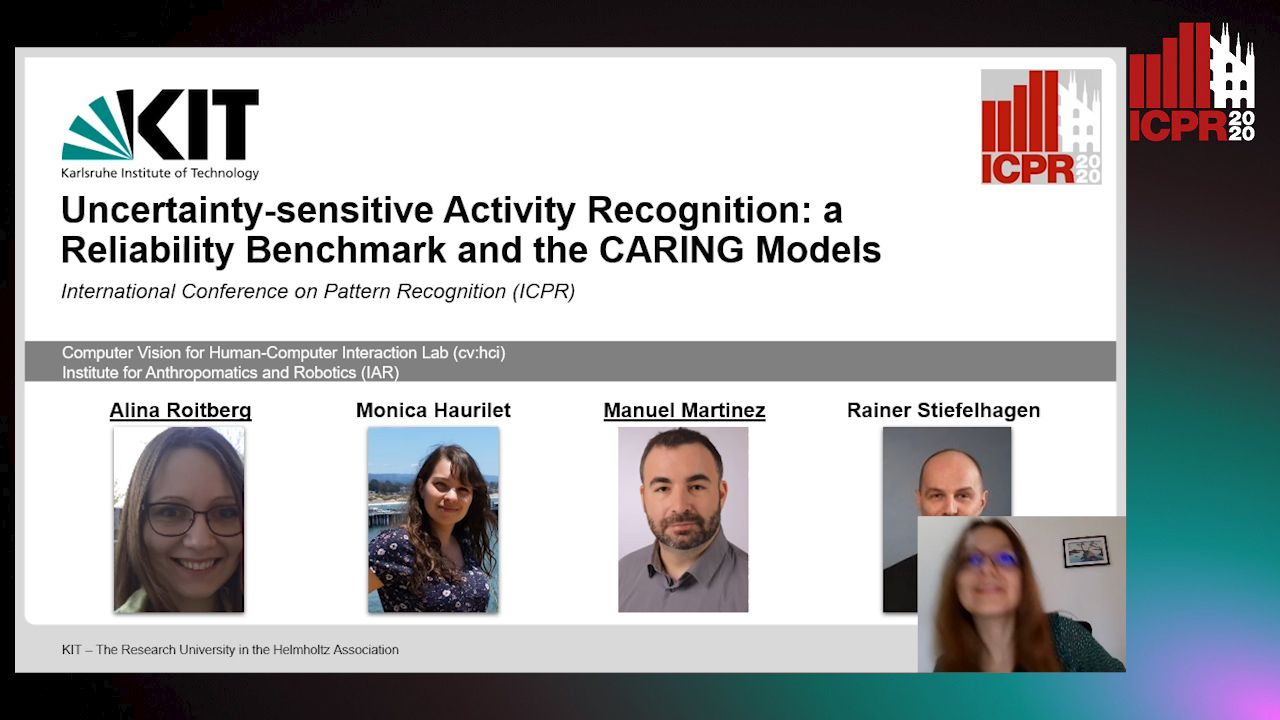Alina Roitberg
Papers from this author
Multi-Task Learning for Calorie Prediction on a Novel Large-Scale Recipe Dataset Enriched with Nutritional Information
Robin Ruede, Verena Heusser, Lukas Frank, Monica Haurilet, Alina Roitberg, Rainer Stiefelhagen

Auto-TLDR; Pic2kcal: Learning Food Recipes from Images for Calorie Estimation
Abstract Slides Poster Similar
Uncertainty-Sensitive Activity Recognition: A Reliability Benchmark and the CARING Models
Alina Roitberg, Monica Haurilet, Manuel Martinez, Rainer Stiefelhagen

Auto-TLDR; CARING: Calibrated Action Recognition with Input Guidance